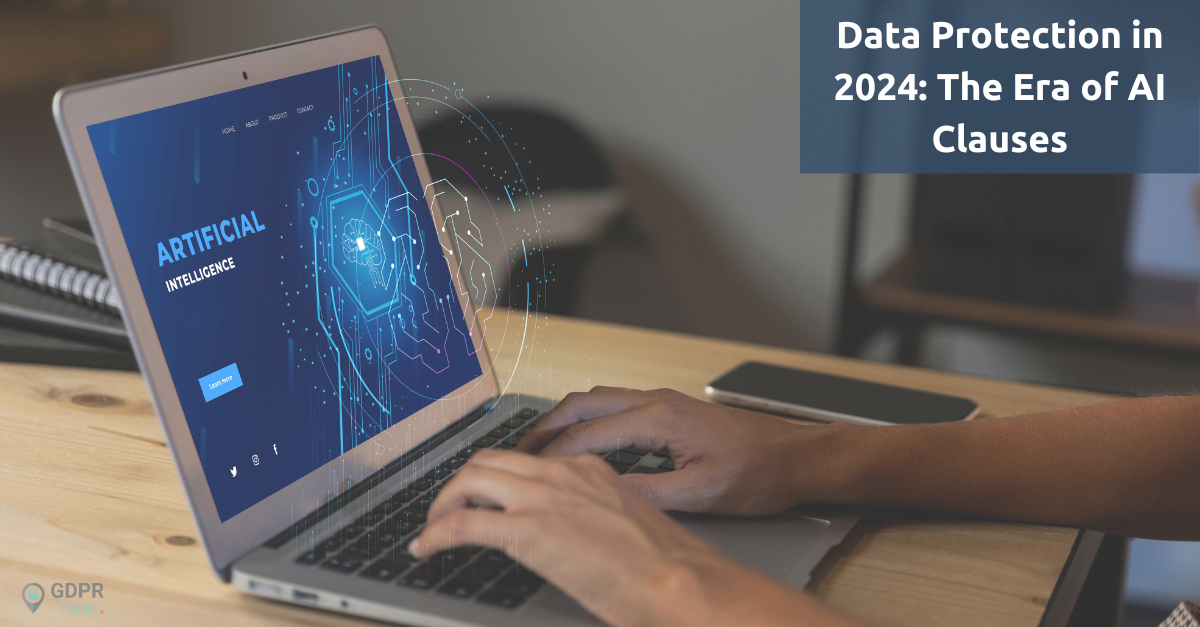
Data Protection in 2024: The Era of AI Clauses
In the ever-evolving landscape of data protection, the year 2024 marks a significant turning point. With the rapid advancements in artificial intelligence (AI) and the increasing need for robust data security measures, organizations are now faced with the challenge of implementing AI clauses in their data protection policies. These clauses serve as a crucial component in the current Data Protection Legislations, such as the General Data Protection Regulation (GDPR), ensuring compliance and safeguarding sensitive information.
The Rise of AI in Data Protection
Artificial intelligence has revolutionized various industries, and data protection is no exception. AI algorithms have the capability to process vast amounts of data, identify patterns, and detect potential security risks. As a result, organizations are increasingly relying on AI-powered tools and technologies to strengthen their data protection strategies.
AI Clauses in Data Protection Legislations
In response to the growing importance of AI in data protection, legislators have incorporated AI clauses into existing data protection regulations. Furthermore, these clauses outline the specific requirements and obligations that organizations must adhere to when implementing AI technologies in their data protection practices.
The Role of GDPR in AI Data Protection
The GDPR, a landmark legislation in the field of data protection, has been at the forefront of regulating AI-powered data processing. It emphasizes the importance of transparency, fairness, and accountability in the use of AI algorithms. Organizations are now required to ensure that their AI systems are designed in a way that protects individuals’ rights and freedoms.
The GDPR also introduces the concept of “explainability,” which mandates that organizations using AI technologies must be able to provide clear and intelligible explanations for any automated decisions that may impact individuals. This requirement is crucial in fostering trust and transparency in the use of AI algorithms.
Implementing AI Clauses: Key Considerations
When incorporating AI clauses into data protection policies, organizations must consider several key factors to ensure effective implementation and compliance. These considerations include:
Data Minimization and Purpose Limitation
One of the fundamental principles of data protection is the minimization of personal data. Organizations must ensure that AI algorithms only process the necessary data required to fulfill a specific purpose. Implementing AI clauses that enforce data minimization and purpose limitation can help organizations avoid unnecessary data processing and minimize privacy risks.
Algorithmic Transparency and Fairness
AI algorithms must be transparent, explainable, and fair to protect individuals’ rights. Organizations should implement AI clauses that require the documentation of algorithmic decision-making processes, including the data used, the logic applied, and the potential impact on individuals. This transparency is crucial in ensuring fairness and accountability in AI-driven data processing.
Data Security and Privacy by Design
AI clauses should emphasize the importance of data security and privacy by design. Organizations must implement appropriate technical and organizational measures to safeguard personal data and protect against unauthorized access or disclosure. Encryption, pseudonymization, and access controls are examples of security measures that can be incorporated into AI clauses to mitigate privacy risks.
Ethical Considerations and Bias Mitigation
AI algorithms are susceptible to biases, which can lead to unfair or discriminatory outcomes. Organizations must address ethical considerations and implement measures to mitigate biases in AI systems. AI clauses should require organizations to regularly assess and monitor AI algorithms for potential biases and take corrective actions when necessary.
The Future of Data Protection with AI Clauses
As we look ahead to the future, the integration of AI clauses in data protection legislations will continue to play a pivotal role in safeguarding individuals’ privacy rights. Moreover, organizations that embrace AI technologies while adhering to AI clauses will gain a competitive edge in terms of data protection, trust, and accountability.
With us as your trusted partner, organizations can navigate the complexities of AI clauses with ease, ensuring compliance and adopting best practices in data protection. Together, we can usher in a new era of data protection, where AI and privacy coexist harmoniously for the benefit of individuals and organizations alike.

The Role of GDPRLocal in AI Clause Implementation
Navigating the intricacies of AI clauses can be a daunting task for organizations. However, with the guidance and expertise of our team, organizations can confidently implement AI technologies while ensuring compliance with data protection regulations.
AI Compliance Assessment
We conduct thorough assessments of organizations’ AI systems to ensure compliance with AI clauses in data protection legislations. This assessment includes reviewing data processing practices, algorithmic transparency, fairness, and privacy safeguards.
Policy Development and Review
We assist organizations in developing and reviewing data protection policies that incorporate AI clauses. These policies are tailored to the specific needs and requirements of each organization, ensuring comprehensive coverage of AI-related data processing activities.
Training and Education
We can provide training and educational resources to help organizations understand the implications of AI clauses in data protection legislations. This training equips organizations with the knowledge and skills necessary to navigate the complexities of AI-driven data processing.
Continuous Compliance Monitoring
Ongoing support including monitoring to ensure that organizations stay up-to-date with evolving AI clauses and regulatory requirements are a must. This proactive approach helps organizations identify and address any compliance gaps in a timely manner.
Contact us at [email protected] for expert assistance in implementing AI clauses in this ever evolving world.